While cleaning out my email account, I found a jewel that I had overlooked. Rabbi Joshua Rabbi responds to an email he received from Misha Galperin (who I do not know). His response regarding Tisha B'av is amazing, and touches on many, if not all of the problems that are facing Jews in the Diaspora today.
Misha Galperin
From: Misha Galperin, Ph. D.,The Jewish Federation of Greater Washington
Sent: Wednesday, July 29, 2009 10:36 AM
To: RJMaroof@mdscbe.org
Subject: Misha's Musings
Dear Friends,
Tomorrow is an ancient fast day, Tisha B’av , that commemorates the destruction of the Temples in Jerusalem and marks an entire move away from the ritual observances in a building to a new type of Judaism, a religion that relies more on builders than on buildings. While the outcome of this historic tragedy may have ultimately put more responsibility on each of us, we are saddened that we have had so much tragedy in Jewish history to memorialize.
Moving on to builders, this increased level of personal accountability seems, however, not to have affected everyone. Last week’s New Jersey scandals involving many Jews and several rabbis did nothing to help a Jewish reputation in the press that is still suffering from Madoff and last year’s Agriprocessors. We’ve been in the news a lot lately and for all the wrong reasons. And it’s not just the American press. Look at any day’s newspaper in Israel, and scandal surfaces again. Not exactly what you’d expect from a nation of ethical builders…
I do not know what to make of all this. It’s very disturbing and troubling. Nowhere do we feel the absence of strong Jewish leadership more than in this moral domain. Who will speak out if rabbis themselves are on the front page of national newspapers? And are we speaking out as we should to strengthen our own moral standing in the world?
I want to begin a conversation with you about this, one that we take across our entire community. What do you think we as Jews can do to live more ethically? Please send me your ideas , and we’ll post them on our ShalomDC web site. I can think of nothing better to read on our new and improved website than your suggestions.
I also want to ask each of you what it would take for Jews to be in the news for all the right reasons. What do we need to do to repair a reputation that may have nothing to do with our own behaviors but contributes to our reputation anyway?
These are difficult questions but ones that we have to ask if we are going to tackle this issue. So, I repeat, what do you think we can do as Jews to live more ethically? Please let me know.
Misha
______________________________________
Here is the response to this email by Rabbi Joshua Maroof:
Dear Dr. Galperin,
I generally appreciate your thoughtful messages and I am glad to receive them. Thank you for the time and effort that you invest in crafting these missives for the benefit of our communities. I hope you accept this response in that same spirit.
I must say that I take exception to your characterization of Tisha B’av as an “ancient fast day” and your description of the Destruction of our Temples as a positive step in the evolution of Jewish religious practice, moving us to a religion that “relies more on builders than on buildings”.
Although the observance of Tisha B’av was indeed established in “ancient” times, its message is profound and highly relevant to the modern era. And the loss of the Temple, which may appear like progress to the uninitiated, was an unspeakable tragedy for the Jewish people.
If you read the prayer of King Solomon at the dedication of the First Temple, which appears in the Book of Kings, you will see that the Bet Hamiqdash was not merely a physical structure in which certain arcane religious services were carried out. In fact, the sacrificial service was not the ultimate purpose of the existence of the Sanctuary – it was a minor facet of its operation.
The Temple was a symbol of Jewish national unity and the abiding relationship between Israel and the Creator of the Universe. It was a reflection of the fact that, while we may disagree on many things, we share a fundamental set of values and priorities that inspire and guide us all. It was a place that all the nations of the world would visit for instruction and education on matters of intellectual, moral and ethical import.
Nowadays, our people is quite literally lost. We no longer have great Sages to provide us with an understanding of our Torah that is decisive and compelling, so our sons and daughters exempt themselves from “Jewish studies” as quickly as possible and pursue other intellectual disciplines that are perceived as more rigorous, relevant and financial rewarding.
We no longer have a Sanctuary to visit and reaffirm our identities as Jews – a unique nation with a unique conception of God and a unique way of life that reflects our commitment to Him. The creation of multiple “movements” in Judaism has subdivided our nation in every possible way, leaving the definition of Judaism itself unclear and confusing.
We are busy competing with the nations of the world for material prosperity and physical pleasures, admiring – indeed, practically worshiping - the celebrities in Hollywood and the power brokers in Washington, meanwhile all but turning a deaf ear and a blind eye to the injustices that abound in our society. Instead of crowding into the Temple to observe the High Priest and the scholars of Torah in worship – an inspiring vision of holiness that would perhaps motivate us to better our lives and enrich our souls – we crowd into football stadiums and auditoriums to have our superficiality reinforced by individuals who profit off of our cluelessness.
Your concern with ethical lapses is valid and praiseworthy, but ethical lapses do not appear in a vacuum. They emerge from a materialistic orientation to the world that is alienated from any transcendent purpose. One who is occupied with the pursuit of wisdom and is disinterested in accumulating wealth, honor and status will not behave unethically. Only a person attached to such things will compromise his or her principles to acquire them.
Take, for example, the fact that our own JCC is open on Shabbat. What values and priorities does this policy reflect? What sense of Jewish identity, history or destiny does it manifest? It is a tragic instance of the subordination of the spiritual to the pragmatic, and of the transcendent to the mundane. Perhaps closing the JCC on Shabbat would be a positive step in the right direction for our community. I know many non-observant Jews who would nevertheless be happy to see such a sanctification of God’s name take place. Maybe it would inspire more acts of sacrifice, more setting aside of immediate and expedient gratification for the sake of noble and eternal ends.
The return to Zion and rebuilding of the Temple that we pray for is not the product of a nationalistic vision. It is a yearning for a different kind of society, a global civilization free from the chains of self-indulgence, materialism and treachery that are imposed upon us by movies, television, and, yes, our very own schools and synagogues! These institutions unfortunately instill in us an insatiable desire for “success”, a distaste for the wisdom of tradition and a craving for the respect of our fellow citizens, Jewish and non-Jewish. Our attachment to the petty “goods” of this society is the fuel that feeds the flame of self-absorption and injustice. Our role models and leaders promote the wrong values and we are not protesting. They are stealing our souls and we are not mourning the loss, because we barely even feel it and, if we do, we don’t care that much anyway, since a soul cannot buy us a Venti Skim Latte at Starbucks or a Mercedes Benz.
The need for a Temple is as real today as it ever was. One day, we firmly believe that it will stand as a symbol of the transcendent goal toward which all of humanity should be striving and as a witness to the pettiness and frivolity of materialistic pursuits. It will assign prominence to men and women of true knowledge and fine character rather than to sports figures and influence peddlers. It will provide us with a venue to teach our children, and the world, that the search for truth for its own sake is the noblest occupation for a human being, that money, titles and honor are meaningless, and that the cost of allowing human beings to suffer in this world is too great to allow us the luxuries with which we are currently all too happy to distract ourselves.
I hope that this Tisha B’av is a meaningful one for all, and that it is the first step toward the redemption of a world that surely needs it.
All the best to you and your entire family.
Sincerely,
Rabbi Joshua Maroof
Magen David Sephardic Congregation
Rockville, MD
Monday, October 19, 2009
Subscribe to:
Post Comments (Atom)









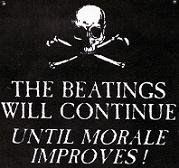



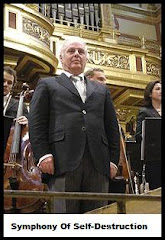


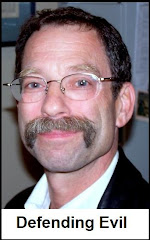
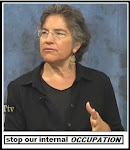
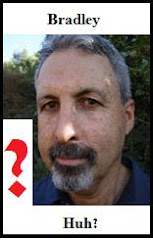




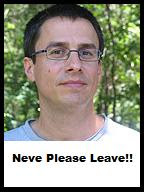



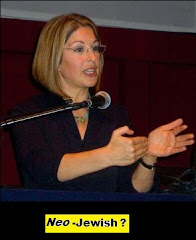


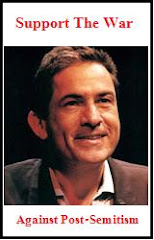

















1 comment:
He’s an amazing writer.
Post a Comment